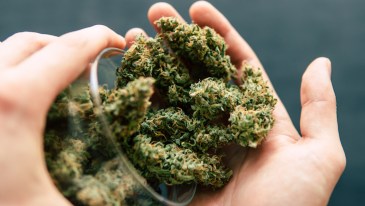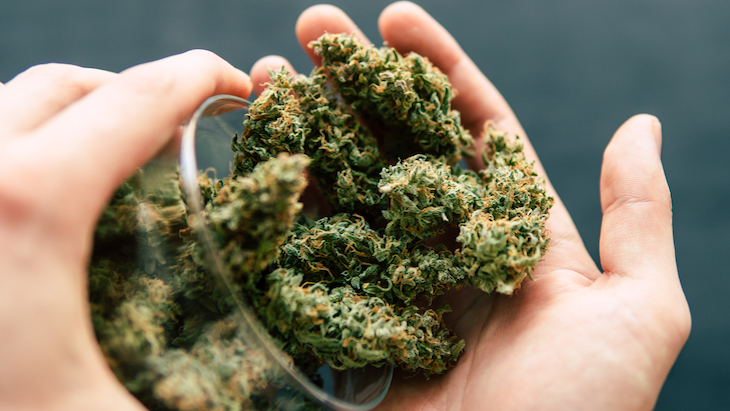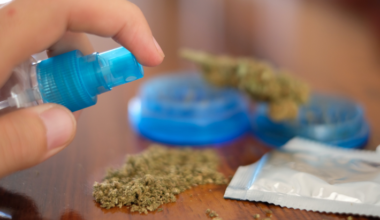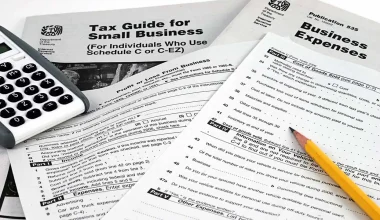
Consumers of higher potency cannabis flowers are not at an elevated risk of experiencing psychosis-like symptoms, according to data published in the journal Addictive Behaviors.
A team of British investigators assessed the association between cannabis potency and mental health outcomes in a cohort of 410 cannabis consumers. Participants in the study were either in their late teens or early 20s. About one-half of the cohort were daily consumers. Study subjects provided responses to questionnaires regarding their preferences toward higher strength, standard strength, or lower strength herbal cannabis. Participants also provided researchers with samples of their own cannabis products for potency analysis.
Investigators failed to identify any association between more potent plant cannabis and an increased risk of dependence, depression, or psychosis-like symptoms, after adjusting for confounders.
They concluded: “This cross-sectional study of 410 people who use cannabis compared presence of cannabis dependence and mental health symptoms in users of high potency cannabis compared to low potency cannabis. … THC concentration in cannabis was not associated with cannabis dependence symptoms. We found weak evidence of an association between both high potency cannabis preference and THC concentration with symptoms of depression. … High potency cannabis use, measured as THC concentration in cannabis and high potency cannabis preference, was not associated with increased symptoms of psychosis-like symptoms.”
Observational trial data published last month in the journal Psychiatry and Clinical Neurosciences also failed to substantiate a link between cannabis consumption and an increased risk of psychosis, even among at-risk subjects. Authors of that study concluded, “There was no significant association between any measure of cannabis use at baseline and either transition to psychosis, the persistence of symptoms, or functional outcomes.”
Data published last year in the New Zealand Medical Journal reported that those with a history of cannabis consumption do not typically exhibit more severe symptoms of psychosis than do those with no history of regular use.
Although the use of cannabis and other controlled substances tends to be more common among those with psychotic episodes, studies indicate that lifetime incidences of acute marijuana-induced psychosis are relatively rare among the general population.
In recent months, political opponents have sought to push for statewide bans on higher THC products — claiming that such products pose unique dangers to public health. These efforts have largely been unsuccessful.
NORML has criticized the imposition of proposed THC potency caps, opining: “Bans on [higher potency] cannabis products will only perpetuate the unregulated market. That is because outlawing these products will drive the production and sale of them exclusively underground. … Rather than reintroduce cannabis criminalization, regulators and other concerned parties should seek to provide the public with more comprehensive safety information about the effects of more potent products. And they should continue to ensure that legal products do not get diverted to the youth market.”
Full text of the study, “High potency cannabis use, mental health symptoms and cannabis dependence: triangulating the evidence,” appears in Addictive Behaviors. Additional information on cannabis and mental health outcomes is available from NORML’s white paper, ‘Cannabis, Mental Health, and Context: The Case for Regulation.’
Related
Medical Disclaimer:
The information provided in these blog posts is intended for general informational and educational purposes only. It is not a substitute for professional medical advice, diagnosis, or treatment. Always seek the advice of your physician or other qualified healthcare provider with any questions you may have regarding a medical condition. The use of any information provided in these blog posts is solely at your own risk. The authors and the website do not recommend or endorse any specific products, treatments, or procedures mentioned. Reliance on any information in these blog posts is solely at your own discretion.






